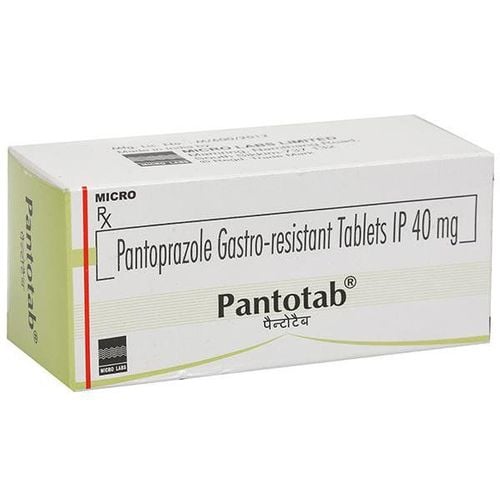This is an automatically translated article.
Cimetidine is an antacid with anti-reflux and anti-ulcer effects. Currently, Cimetidine is widely used in gastrointestinal diseases. Join us to learn about the use of cimetidine stomach medicine through the article below:1. What is Cimetidine?
Cimetidine is a histamine H2-receptor antagonist that works by competitively inhibiting histamine at the H2-receptor of the stomach wall. Thereby reducing secretion and reducing gastric acid concentration even when hungry and when stimulated by food. Cimetidine is prepared in many different forms and strengths:Tablets or film-coated tablets: 300 mg, 400 mg, 800 mg and 200 mg for children. Oral form: 200 mg/5 ml or 300 mg/5 ml. Injectable form: Cimetidine hydrochloride 100mg/ml, 150mg/ml, 100mg/ml (2ml ampoules) or 150mg/ml (2ml ampoules).
For infusion: 600 mg cimetidine/ml (300, 900 or 1200 mg) in 0.9% sodium chloride.
2. What is the effect of cimetidine stomach pain medicine?
Short-term treatment (4-8 weeks) to heal peptic ulcers that are progressive due to stress and non-steroidal anti-inflammatory drugs. Use low doses of cimetidine for maintenance treatment of duodenal ulcers to reduce disease recurrence. Short-term treatment (12 weeks) of ulcerative esophagitis symptoms in people with gastroesophageal reflux disease. Prevention of upper gastrointestinal bleeding in people with serious diseases such as severe trauma, septic shock, liver failure, respiratory failure,... Hypersecretory diseases in the gastrointestinal tract such as Zollinger-Ellison syndrome, multiple tumors endocrine. Treatment of patients with persistent dyspepsia, reducing the risk of aspiration of gastric acid during general anesthesia or childbirth. Prevention and management of some allergic conditions, urticaria when used with antihistamines H1.
3. How to take and dose of stomach medicine cimetidine
3.1. How to use Cimetidine can be used orally or injected. Total dose ≤ 2.4g/day regardless of route. Reduce dose in patients with renal impairment and may reduce dose in patients with hepatic impairment. 3.2. Dosage in adults Treatment of gastric and duodenal ulcers: Single dose 800mg/day in the evening before going to bed or 400mg x 2 times/day each time. The maintenance dose is 400 mg once at bedtime or twice in the morning and evening. Gastroesophageal reflux disease: 400mg x 4 times/day or 800mg x 2 times/day x 4-8 weeks. Increased secretion in the gastrointestinal tract: 300-400mg x 4 times/day. Prevention of upper gastrointestinal ulcers caused by stress: Oral or nasogastric tube 200-400 mg or intravenous 200mg / time, 4-6 hours / time. Non-ulcer dyspepsia: 200mg x 1-2 times/day. Short bowel syndrome: 400mg x 2 times/day. Adjust the dose according to the patient's response. 3.3. Dosage in children Neonates: 5 - 10 mg/kg/day, divided into several doses. Children: 20-40mg/kg/day, divided into several times. 3.4. Dosage in patients with renal impairment depends on creatinine clearance. Creatinine clearance from 15 - 30 ml / min: Oral or intravenous 300 mg / time, each time 12 hours apart. Creatinine clearance < 15 ml/min: 300-400 mg/day. 3.5. Dosage in patients with hepatic impairment Reduce dose, severe liver failure should reduce the maximum dose is 600 mg.
4. Notes when using Cimetidine 300mg
Use the medicine exactly as directed on the label or as prescribed by your doctor. Do not arbitrarily use the drug in an overdose or for a longer time than prescribed. The possibility of cancer must be excluded before using the stomach medicine cimetidine for the treatment of gastric ulcers. Reduce dose in patients with renal impairment. When administered intravenously, it must be administered slowly. When using high doses, the intravenous route is preferred. Cimetidine interacts with many drugs, so when used in combination with other drugs must be carefully considered. There are currently no adequate studies on the effects of cimetidine 300mg in pregnant women. Therefore, only use cimetidine 300mg when absolutely necessary and must consult a doctor. Avoid using the stomach medicine Cimetidine while breastfeeding (in women). Inform your doctor when you are having health problems such as: diabetes, asthma, liver disease, kidney disease, etc. If you miss a dose, use it immediately. However, if it is almost time for your next dose, skip the missed dose and use the next scheduled dose. Do not take double the dose specified in the prescription.
5. Undesirable effects when using Cimetidine
When using Cimetidine may experience the following undesirable effects:
Digestive disorders, diarrhea. Headache, dizziness, dizziness, fatigue, somnolence. Rash on the skin. Gynecomastia in men with prolonged treatment or high doses. Long-term use of high doses can cause impotence. Manifestations of maculopapular, acne-like rash, urticaria on the skin. Elevated liver enzymes are temporary and resolve spontaneously upon discontinuation of the drug. Increased blood creatinine. Rare side effects when using Cimetidine include:
Symptoms of arrhythmias such as bradycardia, tachycardia, atrioventricular conduction block. Rapid intravenous injection may cause cardiac arrhythmias in patients. Decreased types of blood cells, causing non-regenerative anemia. Reduced absorption of vitamin B12 can easily cause anemia. Restlessness, hallucinations, disorientation, depression, agitation. May cause jaundice, cholestatic hepatitis, liver dysfunction, acute pancreatitis, interstitial nephritis. Muscle pain, joint pain. Fever, allergy, anaphylaxis, vasculitis, toxic epidermal necrolysis, Stevens - Johnson syndrome.
6. What to do in case of an overdose of Cimetidine?
Immediately notify 911 emergency center or go to the nearest local medical station for timely treatment. Treat symptoms that occur, induce vomiting and gastric lavage if necessary. Do not take diuretics. Treat with respiratory support and use beta-adrenergic blockers in cases of respiratory failure and tachycardia. Cimetidine is a relatively safe and highly effective treatment for peptic ulcers. However, during use, the drug often causes side effects on the gastrointestinal tract. Therefore, when using the drug, it is necessary to strictly follow the instructions and notify the doctor when experiencing unwanted symptoms for guidance and timely treatment.
Please dial HOTLINE for more information or register for an appointment HERE. Download MyVinmec app to make appointments faster and to manage your bookings easily.













